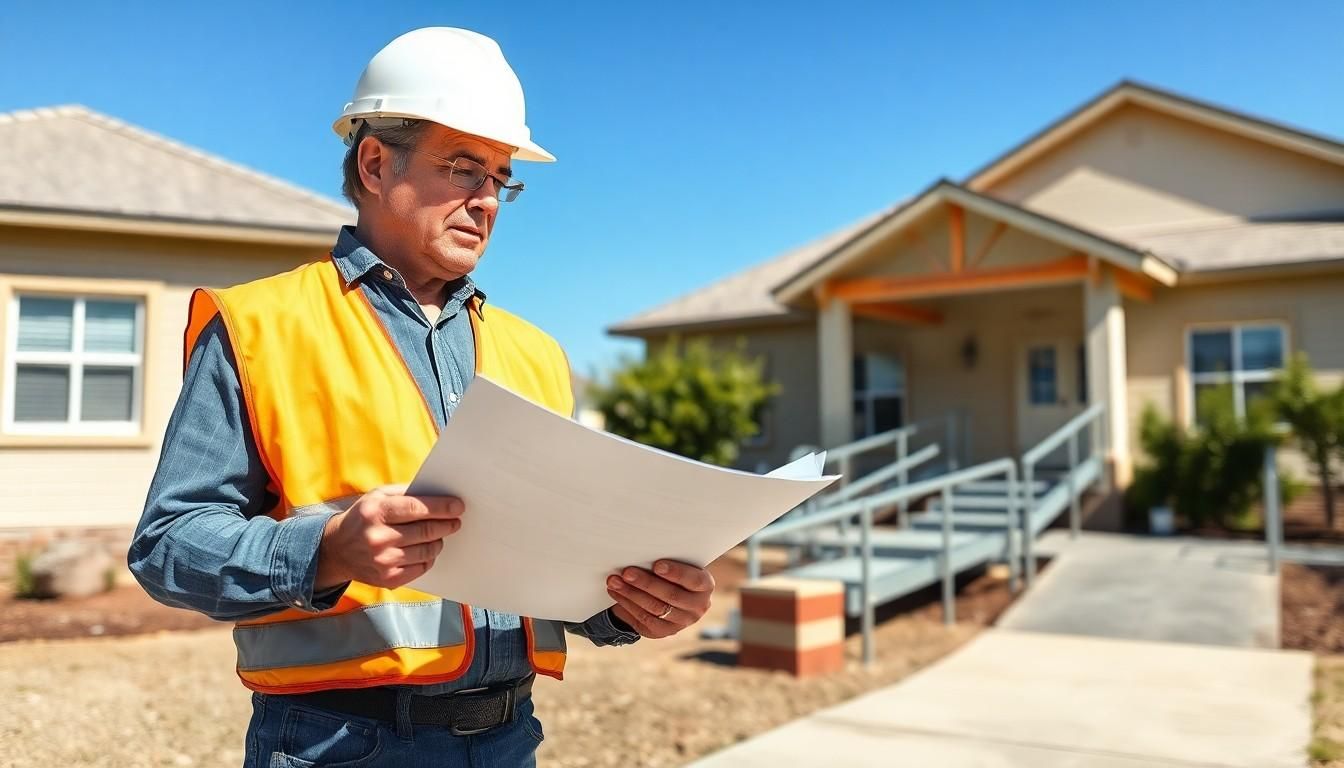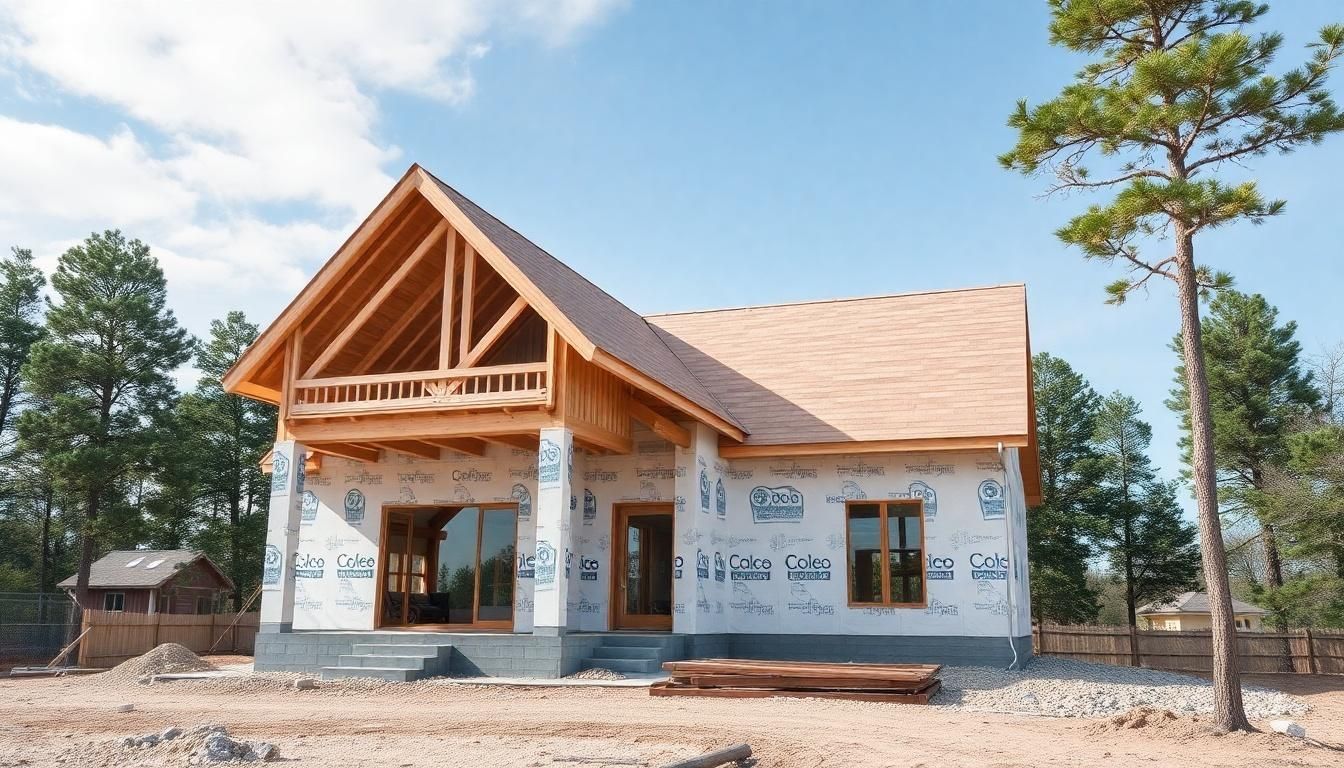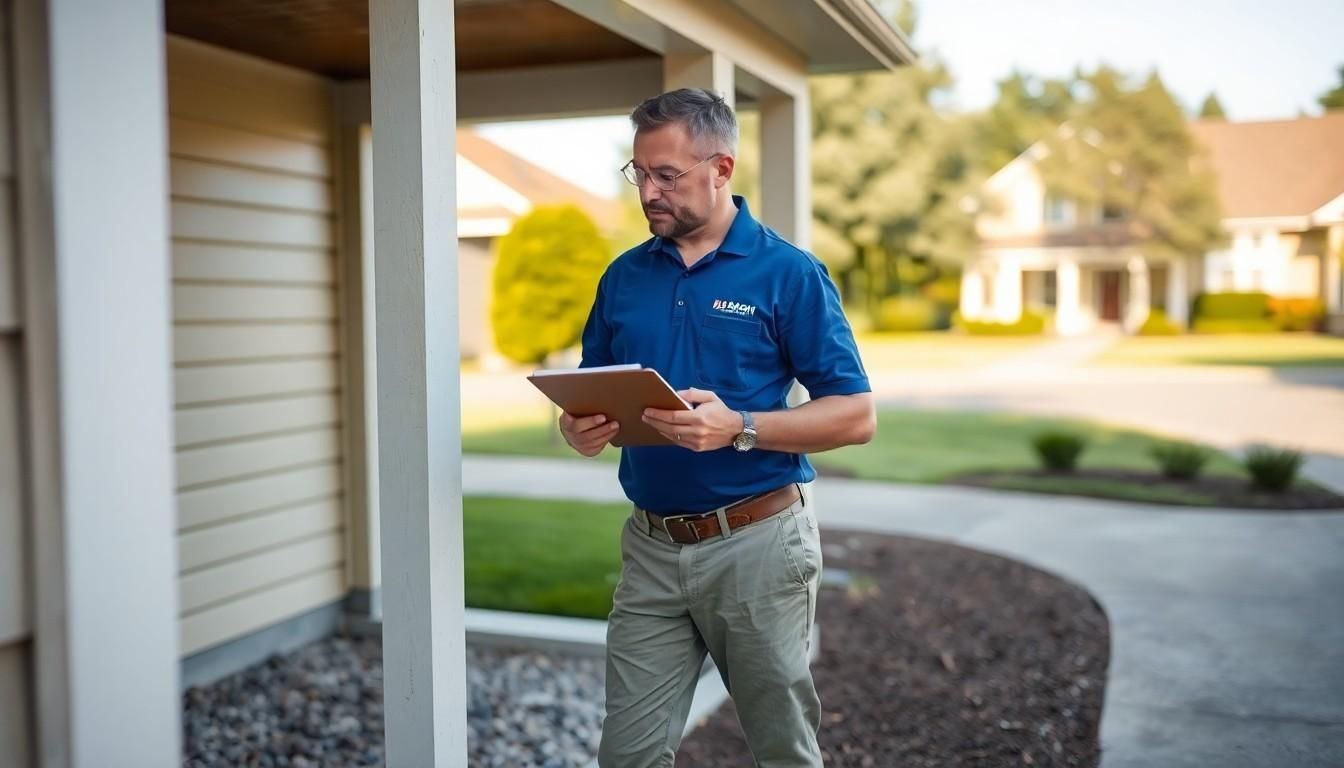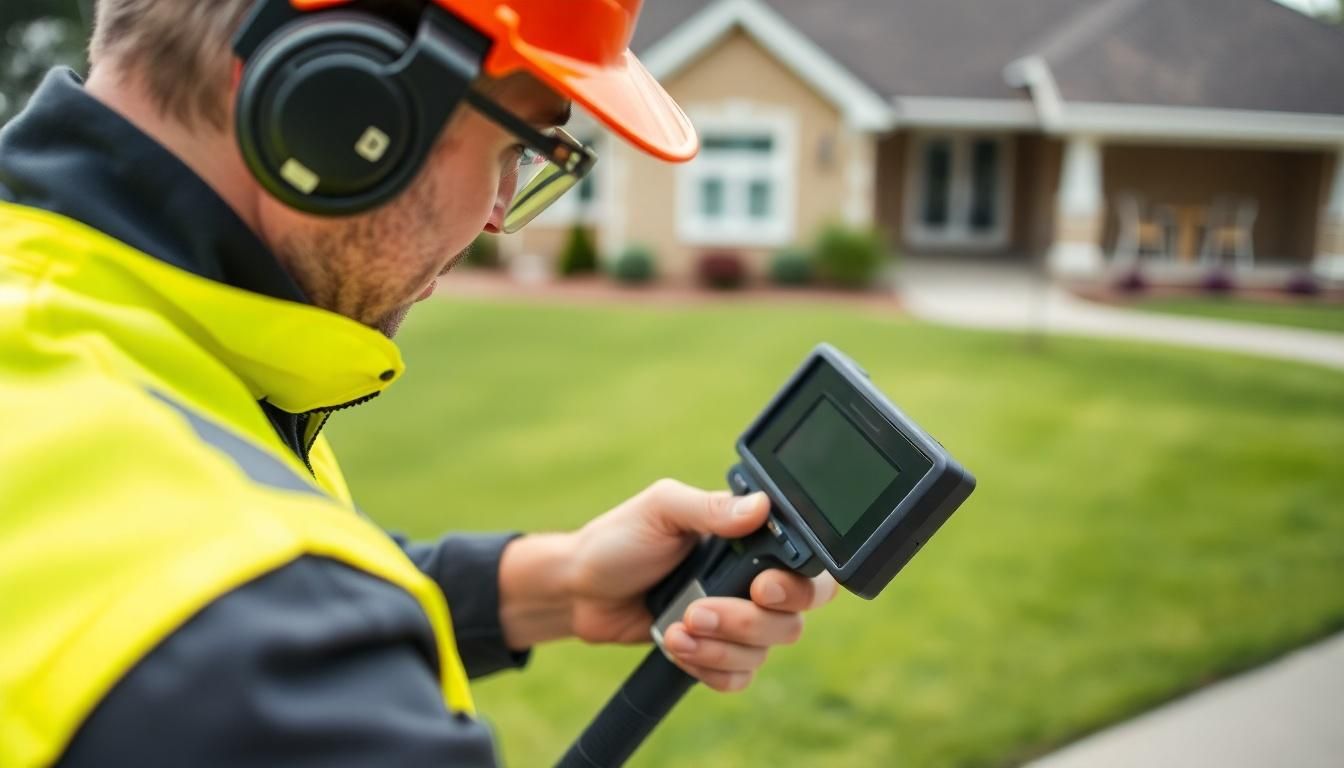Importance of Home Inspections: Safeguard Your Investment
- Home inspections are essential in real estate to uncover potential issues before a sale.
- They check for structural, electrical, and safety concerns, including mold, radon, and carbon monoxide.
- Benefits include negotiating power, detailed reports, cost planning, and reduced buyer's remorse.
- The inspection process consists of an initial walkthrough, external and internal checks, mechanical systems assessment, and report generation.
- Key areas covered include plumbing, electrical systems, HVAC, roofing, and foundations.
- Choosing a qualified inspector ensures thorough assessments; look for certifications, experience, and positive reviews.
- Skipping inspections can lead to unforeseen repair costs and safety hazards, such as mold and structural damage.
- Technology, like infrared cameras and virtual inspections, enhances inspection efficiency and accuracy.
Are you willing to risk major structural issues by skipping a home inspection in your real estate transaction? Home inspections play an essential role in uncovering potential problems, ensuring that buyers and sellers enter agreements with clear expectations. A thorough inspection can identify serious concerns like foundation cracks or electrical hazards, which, if left undetected, could transform your dream home into a financial nightmare. By understanding the importance of these inspections, homeowners can safeguard their investments, protect their health and safety, and ensure that the property meets required standards.
The Essential Role of Home Inspections in Real Estate
Home inspections are crucial in real estate. They provide a detailed look at properties to uncover any hidden issues, including structural, electrical, and safety concerns. This step is vital before finalizing a sale, as it checks the seller's claims and protects both parties from unforeseen problems.
Why Are Home Inspections Important?
Precision: Home inspections find structural, electrical, and safety problems that might be missed during a simple viewing.
These inspections serve as a safeguard to ensure the property's condition matches what's advertised. Without them, buyers risk purchasing homes with hidden issues, and sellers might face legal troubles if discrepancies appear after the sale.
Common structural issues found during inspections include:
- Foundation cracks
- Roof damage
- Wall and ceiling problems
Electrical issues such as outdated wiring or faulty outlets are serious safety hazards. Safety concerns like mold, radon, and carbon monoxide are also detectable through professional inspections.
Home inspections offer peace of mind by providing a full assessment of the property's condition. Buyers can make informed decisions, negotiate repairs, or adjust purchase prices, protecting their investment. Sellers benefit, too, as addressing issues beforehand can lead to smoother sales and possibly higher offers.
In short, home inspections are key in real estate, ensuring transparency and safeguarding investments. They help prevent unexpected costs and boost the safety and satisfaction of both buyers and sellers.
Benefits of Conducting Home Inspections
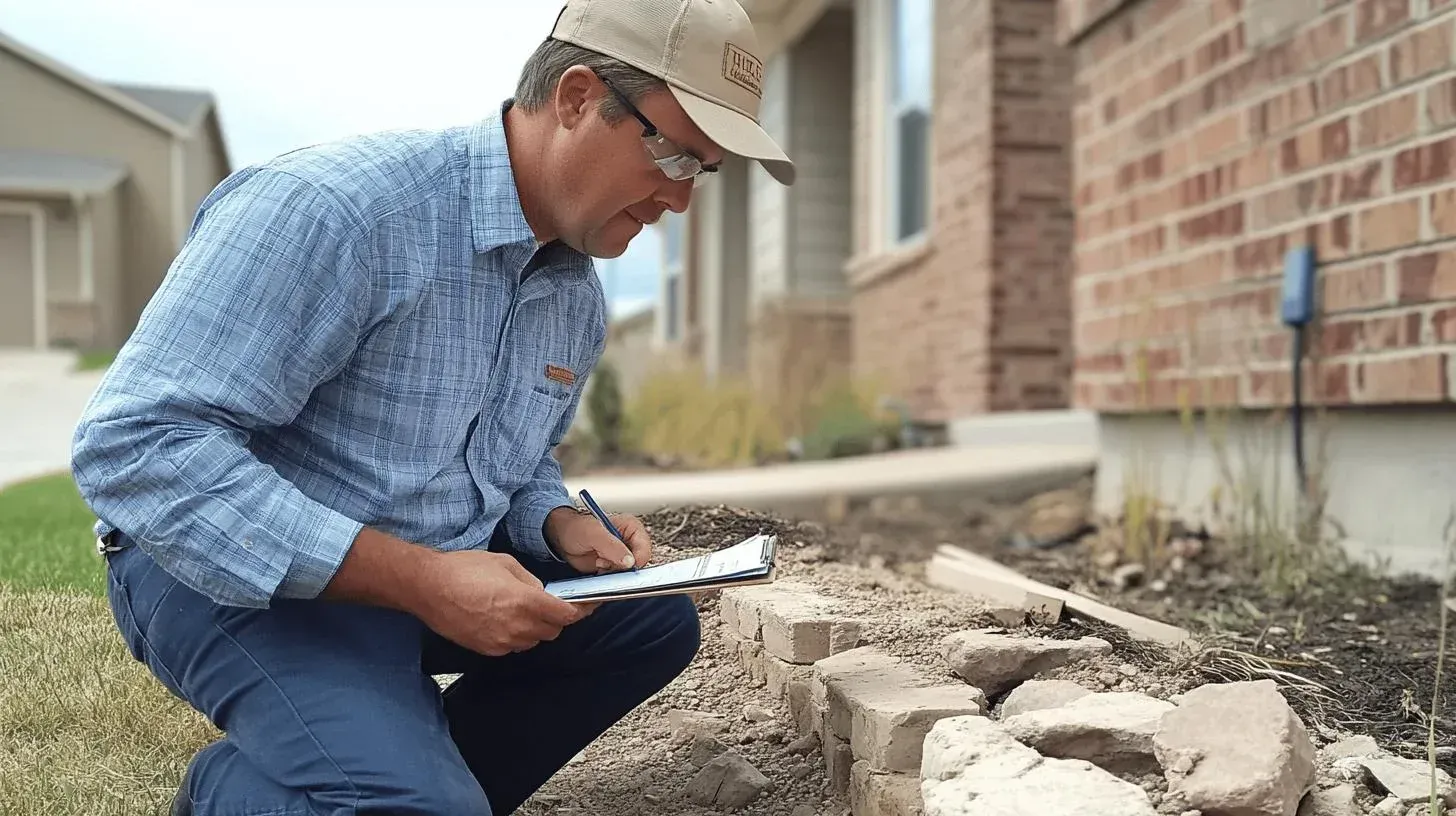
Why conduct home inspections?
Precision: Inspections protect buyers by spotting potential issues, preventing costly repairs, and aiding negotiation.
By assessing a property's condition, inspections are vital for both buyers and sellers. They offer a detailed report that highlights existing problems and predicts future maintenance needs. This foresight allows buyers to plan for restoration costs and make informed financial choices.
Benefits include:
- Negotiating Power: Buyers can use inspection reports to negotiate repairs or lower purchase prices, especially when major issues surface.
- Detailed Reports: These offer a comprehensive view of the property's state, covering structural, electrical, and mechanical aspects, vital for assessing its true value.
- Cost Planning: Knowing needed repairs helps buyers budget, preventing unexpected expenses.
Additionally, thorough inspections can improve prospects for home insurance by proving the property's good condition, leading to better terms and reduced liabilities.
Reducing buyer's remorse is another key benefit. Understanding a property's true condition before buying helps avoid surprises later, increasing satisfaction and confidence. Inspections aren't just formalities—they're a shield for financial and personal well-being.
Understanding the Home Inspection Process
A general home inspection examines a house’s physical structure and systems from the roof to the foundation. This process is key to spotting issues invisible to the untrained eye. The inspection process is similar whether a house is new or old, though older homes may have more defects needing a more thorough assessment.
Phases of Home Inspection
- Initial Walkthrough: The inspector reviews the property, noting any immediate concerns and understanding the layout.
- Exterior and Interior Check: The inspector examines exterior parts like siding, windows, and doors, then moves inside to check walls, ceilings, and floors for damage signs.
- Mechanical Systems Assessment: Crucial systems like plumbing, electrical, and HVAC are evaluated to ensure they're working properly and are safe.
- Report Generation: The inspector creates a detailed report outlining the property's condition and any issues found, offering essential insights for buyers or sellers.
Home Inspection Checklist
Inspections cover:
- Plumbing systems
- Electrical systems
- HVAC systems
- Roofing
- Foundation and structure
- Insulation and ventilation
This checklist ensures all critical aspects of the property are reviewed, providing a thorough understanding of its current condition. This structured process helps safeguard investments and assure peace of mind.
Choosing a Qualified Home Inspector
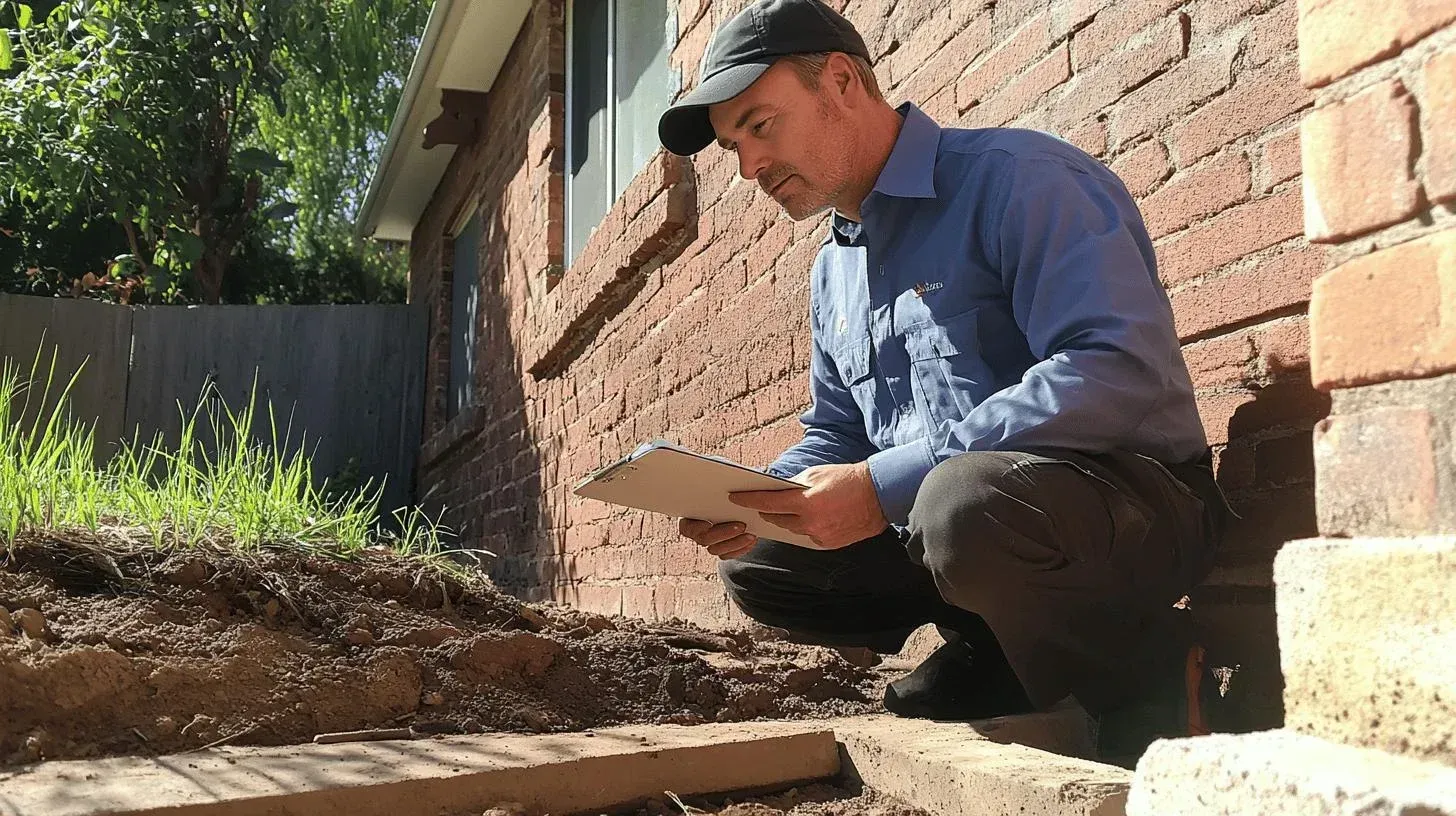
Why choose a qualified home inspector?
Precision: A skilled inspector ensures thorough and reliable property assessments.
When hiring an inspector, their credentials and experience are vital. A qualified inspector can find hidden issues that might lead to costly repairs or safety hazards if missed.
Check for certifications from recognized organizations. These show the inspector meets industry standards and has the skills for comprehensive inspections. Certifications also mean they keep up with the latest practices and regulations.
Experience is also critical. An inspector with years of experience is likely familiar with many issues and can provide insights others might miss. This knowledge is invaluable for identifying and assessing potential problems.
Consider these qualifications:
- Certification from reputable organizations
- Years of field experience
- Positive client reviews
Reviews from past clients assure an inspector's reliability and thoroughness. A history of satisfied customers signals high-quality service.
Ongoing education is crucial. Inspectors need to complete 20 hours of continuing education yearly, with at least half of these hours in-person. This learning keeps them updated on industry changes, ensuring accurate assessments.
Choosing a qualified inspector protects buyers' investments and prevents surprises, aiding smooth and informed real estate transactions.
Consequences of Skipping Home Inspections
What risks do you face if you skip home inspections?
Precision: Skipping inspections can lead to extra costs and safety hazards, impacting finances and well-being.
Without an inspection, buyers risk missing hidden issues that can greatly affect their investment. Inspections identify problems unseen in a normal walkthrough, guarding against surprises.
What hidden issues might be missed?
Precision: Mold problems, electrical hazards, and structural concerns.
These issues, if unnoticed, lead to big repair bills and unsafe living conditions. Mold can cause health issues, electrical problems pose fire risks, and structural damage might need extensive repairs.
- Mold and mildew issues
- Electrical hazards
- Structural integrity concerns
Neglecting inspection can lead to buyer's remorse as new homeowners face repairs and costs. Savings from skipping an inspection can quickly disappear when fixing hidden problems. An inspection not only protects investments but also assures the safety of occupants.
By understanding the consequences of skipping inspections, buyers make informed decisions and avoid unforeseen costly repairs and safety issues.
Integrating Technology in Home Inspections

How does technology improve home inspections?
Precision: Tools like infrared cameras and digital aids find hidden problems like moisture or insulation issues.
Using these technologies in inspections allows better property assessment by uncovering invisible issues. Infrared cameras spot temperature changes, revealing water leaks, insulation gaps, or electrical issues.
What about virtual inspections?
Precision: Virtual inspections provide a convenient option for large or distant properties.
Using digital platforms, inspectors can perform thorough evaluations remotely. This helps in long-distance transactions or when inspecting large properties where visits aren't practical.
Technological Advancements in Inspections
- Improved Accuracy: Advanced tools pinpoint issues early, reducing risk of future problems.
- Convenience: Technology makes scheduling and accessing reports easier for everyone involved.
- Remote Access: Virtual inspections evaluate properties from anywhere, broadening inspection services.
By incorporating these tools, inspections become more efficient and comprehensive, safeguarding investments and offering peace of mind to buyers and sellers.
Final Words
Home inspections are a vital component in the real estate process, bridging the gap between buyer and seller expectations. From identifying critical structural issues to offering leverage in negotiations, inspections are crucial for protecting investments. With a detailed understanding of the inspection process and the benefits of hiring a certified inspector, buyers and sellers are well-prepared to navigate potential challenges.
Skipping this essential step could lead to unforeseen problems, underscoring the importance of home inspections. As technology integrates into the industry, it promises greater accuracy and convenience, reinforcing the continued importance of home inspections.
FAQ
What is the importance of home inspections near California and Texas?
A home inspection helps identify potential issues with properties in both locations, protecting buyers from unexpected repairs and ensuring the property's condition aligns with the seller's claims.
Is a home inspection required for a mortgage?
No, a home inspection is not required for obtaining a mortgage. However, it is highly recommended to identify possible issues that may affect the property's value and safety.
What is a home inspection and why is it important?
A home inspection involves a visual assessment of a property's structural integrity and mechanical systems, offering essential insights into needed repairs and helping prevent buyer's remorse.
What are five very important things that are inspected in a home inspection?
Inspectors often focus on foundation stability, roof integrity, electrical systems, plumbing, and HVAC components to ensure the property's safety and efficiency.
What is the biggest red flag in a home inspection?
Severe foundation cracks can be a major red flag, indicating potential structural failure and requiring immediate professional attention.
What are the advantages and disadvantages of a home inspection?
Advantages include negotiating leverage, detailed property condition reports, and foreknowledge of maintenance needs. A downside might be the upfront cost of inspection services.
What things might fail a home inspection?
Common failures include structural issues like foundational cracks, significant roof damage, outdated or unsafe electrical systems, and plumbing concerns.
What is a home inspection checklist?
A comprehensive checklist covers structural integrity, roofing, electrical systems, plumbing, and HVAC systems, ensuring all aspects of the property meet safety standards.

